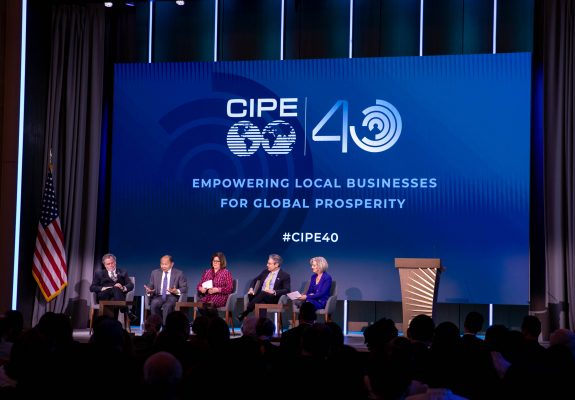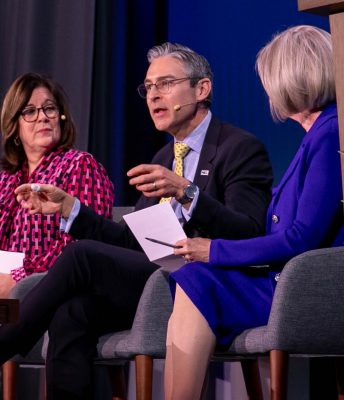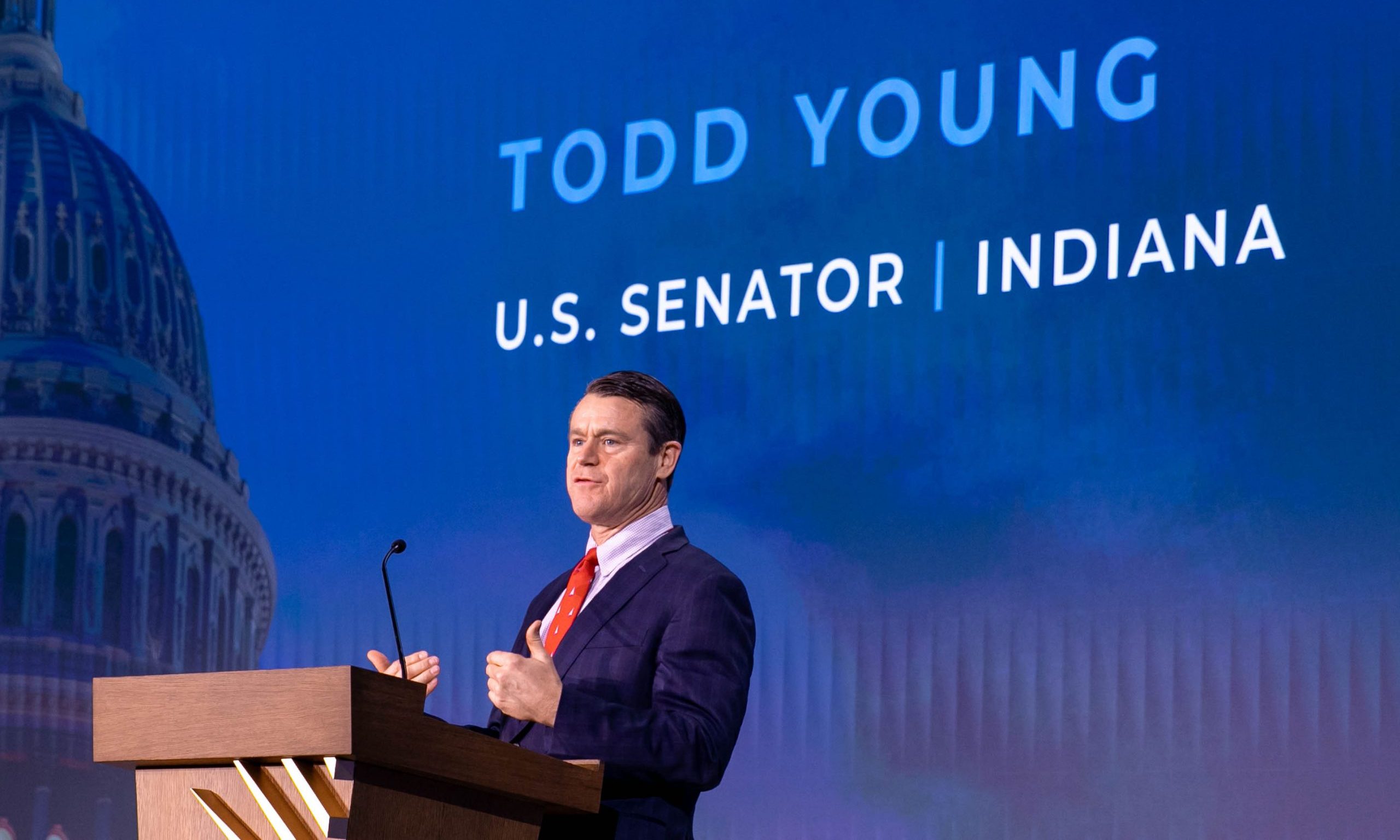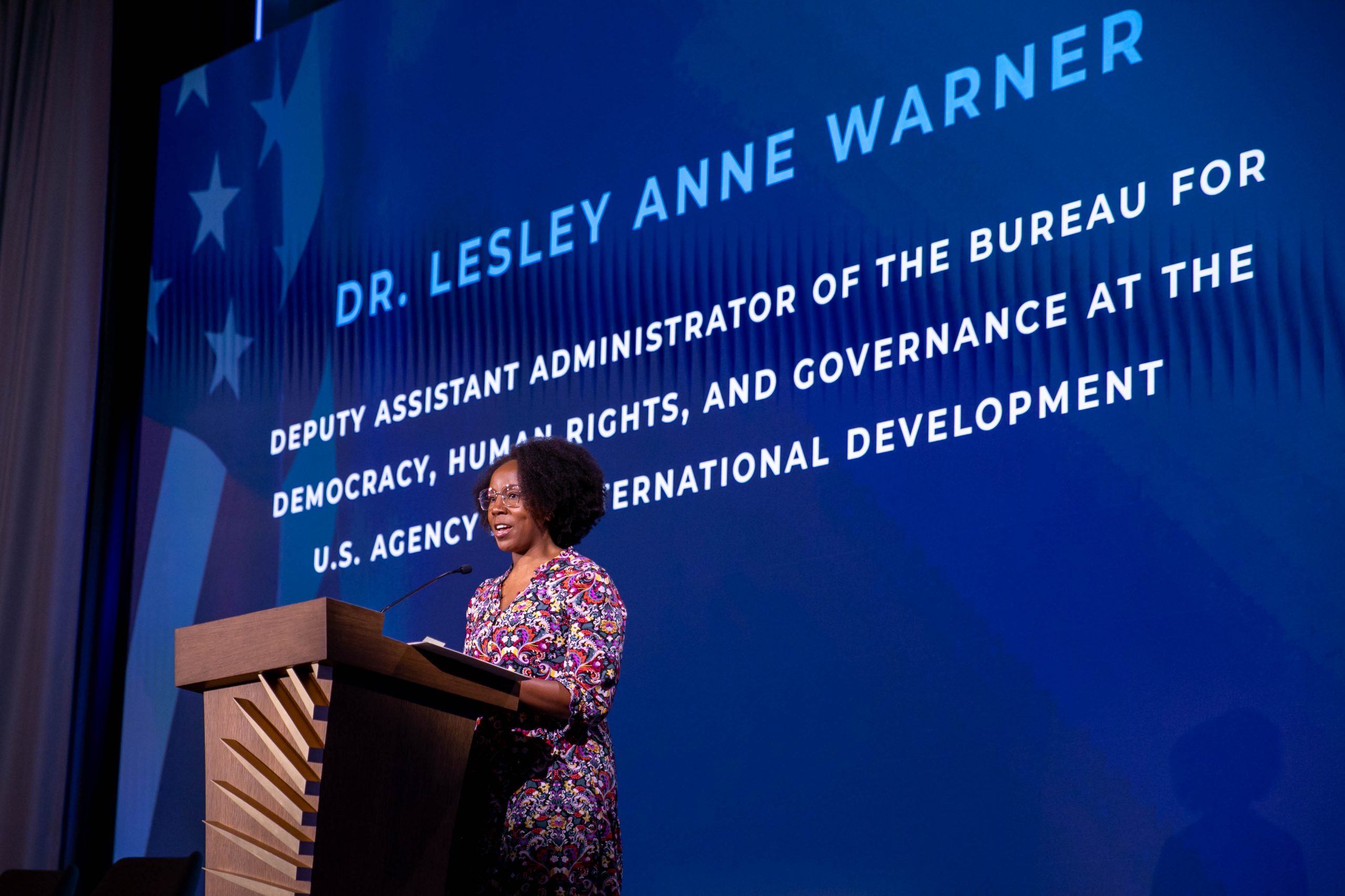 As pundits think and debate whether democracy can deliver freedom and prosperity, one thing remains clear: of course it can. It always has. And in this pivotal moment, the private sector is proving from country to country that the role of business is more important than ever. That is the consensus and call to action from well-known experts and politicians who recently assembled for CIPE’s 40th anniversary celebration in Washington.
As pundits think and debate whether democracy can deliver freedom and prosperity, one thing remains clear: of course it can. It always has. And in this pivotal moment, the private sector is proving from country to country that the role of business is more important than ever. That is the consensus and call to action from well-known experts and politicians who recently assembled for CIPE’s 40th anniversary celebration in Washington.
Among their key points: this year four billion people are expected to go to the polls to pick leaders in national elections, a record number that is unlikely to be surpassed for at least two decades. And democracy is more than just voting. It’s also about participating and it’s about holding leaders accountable, all of which takes hard work to maintain and also adjust.
 “It is another consequential moment for democracy,” said Damon Wilson, President and CEO of the National Endowment for Democracy during the event’s panel discussion. “And yet that story of supporting average people to just have a voice and shape their own future — to give them a little oxygen; a little power over their own future — is at the heart of what’s going to be a strategy for democratic renewal where private enterprise is at the core.”
“It is another consequential moment for democracy,” said Damon Wilson, President and CEO of the National Endowment for Democracy during the event’s panel discussion. “And yet that story of supporting average people to just have a voice and shape their own future — to give them a little oxygen; a little power over their own future — is at the heart of what’s going to be a strategy for democratic renewal where private enterprise is at the core.”
The panel, which was moderated by former Ambassador Lisa Gable, also featured writer and political theorist Francis Fukuyama, U.S. Chamber of Commerce President and CEO Suzanne Clark, and CIPE’s Executive Director, Andrew Wilson. The speakers debated and discussed the possible solutions to many of the challenges facing democracy: corruption, the information space, gender equality, and other inclusion matters, to name a few. In the end, they all agreed that leadership from the private sector will be key.
Indiana Senator Todd Young, who has introduced bi-partisan legislation to combat global corruption and economic coercion, addressed increasing fears that currency manipulation, corrosive capital investments, and other tactics used by authoritarian regimes to control developing countries prevent those states and peoples from reaching their potential. He went on to remind the audience that “free enterprise has dramatically improved material conditions for people across the globe” and noted the importance of CIPE’s work to national security, as well as economic wellbeing.
Another featured speaker was Dr. Lesley Anne Warner, who is the Deputy Assistant Administrator of the Bureau for Democracy, Human Rights, and Governance at the U.S. Agency for International Development
Similar to Young, she asserted that organizations such as CIPE and the Consortium for Elections and Political Process Strengthening (CEPPS), of which CIPE is a technical partner, are filling a critical role in our rapidly changing world, as they work with local private sector organizations to identify governance gaps that allow damaging foreign investments, thwart transnational corruption, advance women’s economic empowerment, and facilitate inclusive democratic digital transformation.
“Flourishing democracies are good for business, and conversely, good businesses are a powerful engine for democratic governance…” said Warner. She later added “…we need the innovative mindset of the business sector: its tech savvy, its risk appetite to understand where the innovation might be most needed, and how to incentivize it.”
And that is essentially CIPE’s secret sauce, as many staff like to say. Since its founding in 1983, CIPE has partnered with thousands of business associations, chambers of commerce, and think tanks in some of the world’s toughest environments to help those countries and communities build enterprise ecosystems and improve governance through greater public-private dialogue or business agendas for change. This work is helping to improve millions of lives.
The full CIPE anniversary event can be viewed here. In the coming weeks and months, CIPE will explore more deeply the topics discussed at the event and introduce you to CIPE programs that are helping communities and countries meet the moment at hand and plan for a brighter future.
CIPE is an affiliate of the U.S. Chamber of Commerce and a core institute of the National Endowment for Democracy. Over its 40-year history, CIPE has carried out more than 3000 projects in 138 countries. Many lessons learned, highlights, and photos are featured on a newly updated timeline.
Published Date: February 09, 2024



